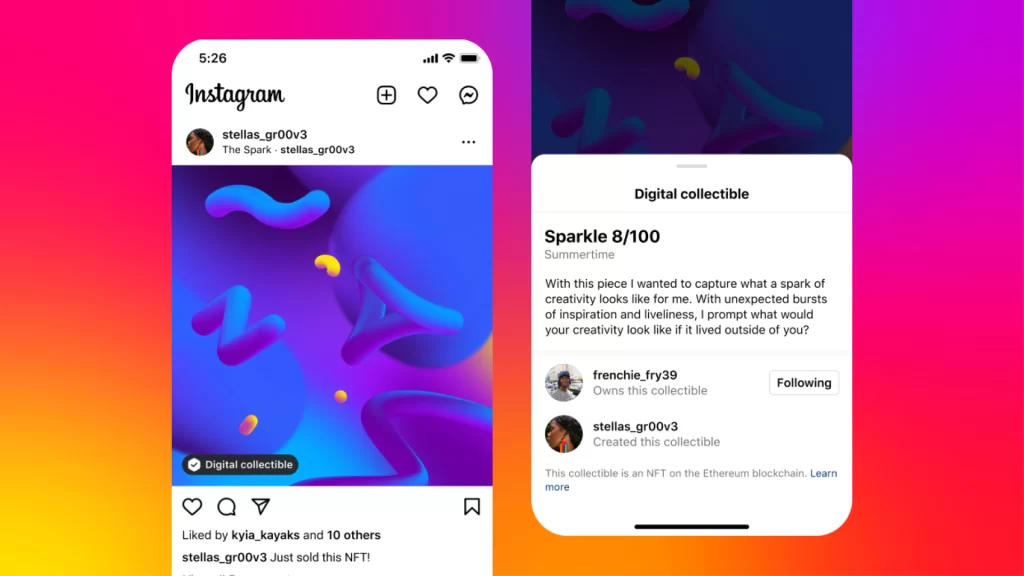Business & Tech News: Last Week Digest
Business news
Mozilla has launched a $35 million VC fund for startups
During Web Summit, which took place in Portugal, Mozilla announced starting a $35 million VC fund for early-stage startups. Mozilla Ventures will be launched in early 2023. The startups that can benefit from the fund should follow the principles laid in Mozilla Manifesto, such as privacy, inclusion, transparency, accessibility, and human dignity. Mozilla’s long-term strategy is to fuel an ecosystem of products and technology that respect users and make the internet healthier.
Mozilla Foundation executive director Mark Surman claims that Mozilla Ventures is the first focused solely on responsible internet startups.
Meta will allow creators to sell their NFTs on Instagram
Meta has presented a new tool that is being tested to mint and sell NFTs on Instagram. It will work like a traditional NFT marketplace. The feature will be first introduced to a small group of creators in the US.
In this way, Meta wants to help creators to reach their audience, grow communities and earn money for a living.
It also expands the variety of tools within a professional mode, adding monetization options as well. It will add the Stars virtual currency and gifts on Instagram. The followers can reward the creator for Reels or other content. For now, the new tools are also being tested by creators from the US.

Elon Musk’s current moves as an owner of Twitter
After Elon Musk purchased Twitter and fired its board of directors, he became the sole director and gained control over social media.
Various sources reported that Musk’s first moves aimed to monetize the platform by introducing a subscription to Twitter Blue services. The price of a subscription may cost up to 20$ per month and includes features such as the ability to post longer videos, priority in replies, mentions, and searches, fewer ads, and verification on the platform. Throughout the course of Twitter’s existence, verification has always been free, and to get the account verified, a user had to show the notability and authenticity of the account, together with the public interest.
Also, Musk is planning to reboot Vine, a video platform that Twitter acquired in 2012. It was shut down in 2016. Now the Twitter engineers are tasked with going through Vine’s codebase and updating the app for its possible relaunch at the end of the year.
Science news
Scientists found a way to transform thoughts into words
Scientists from the University of California developed an implant that allows people to express their thoughts without saying a word. After decades of research on the underlying brain mechanism, a paralyzed man tested the invention.
A flexible electrode, placed over the brain surface, transmitted the neural signals transmitted to the speech recorder. It translated the signals into words the man wanted to say. For the first time, a man who couldn’t speak expressed himself using the whole sentence, not just words, with the help of neurotechnology.
The discovery is based on machine learning and artificial intelligence. First, the scientist could feed the data they collected about neural activity and speech kinematics into a neural network. The machine-learning algorithm found patterns between two data sets and made connections between neural activity and produced speech. With the help of this model, it could produce computer-generated speech or text.
Though the algorithm missed the data about the corresponding muscle movements, it couldn’t be trained for paralyzed people. So they separated the problem into two steps. The decoder translates brain signals into the intended movements of muscles in the vocal tract, and then those movements are translated into synthesized speech or text.
The big step is training the decoder to translate the muscle movement into sounds, as the relations between vocal tract movements and sound are universal. The scientists trained the decoder on big data sets received from people who are not paralyzed.
Government news
The Internet will never be the same again
On November 1, the European Union’s Digital Markets Act came into force. It establishes new regulations aiming to force Amazon, Google, and Meta to make their platforms more open and interoperable in 2023.
The new law claims that domain platforms, such as AppStore, allow iPhone users to download apps from other smaller stores. As well as obligates Meta’s WhatsApp to receive messages from Telegram or Signal. It should also stop Apple, Google, or Amazon from prioritizing their apps and services.
In spring, the EU will name the companies that can be considered as “gatekeepers” so the tech platforms don’t have to comply immediately.
Tech companies should also be prepared to the second EU law, the Digital Services Act. It requires to asses risk of some algorithms and disclosures of automated decision-making. Some apps, like TikTok or Instagram, may be obliged to open their data to the world. There are several stages of implementing the law, and the companies will have to comply in the middle of 2024. Three might as well be made specific rules for AI coming from the EU, which may prevent using the technology in some cases.
High-tech may solve environmental issues in China
China released a new action plan according to which it will build a “green technology innovation system” until 2025. It will use big data, biotech, and artificial intelligence to resolve its complex environmental challenges.
The help of high-tech solutions will tackle air, soil, and groundwater pollution, reduce waste and protect ecosystems. The action plan also has to help China reduce CO2 emission by 2030 and become carbon neutral by 2060.
The initiative will be financed through tax incentives and new “green technology banks”. As well as China will encourage companies and financial institutions to support innovative green technologies.






